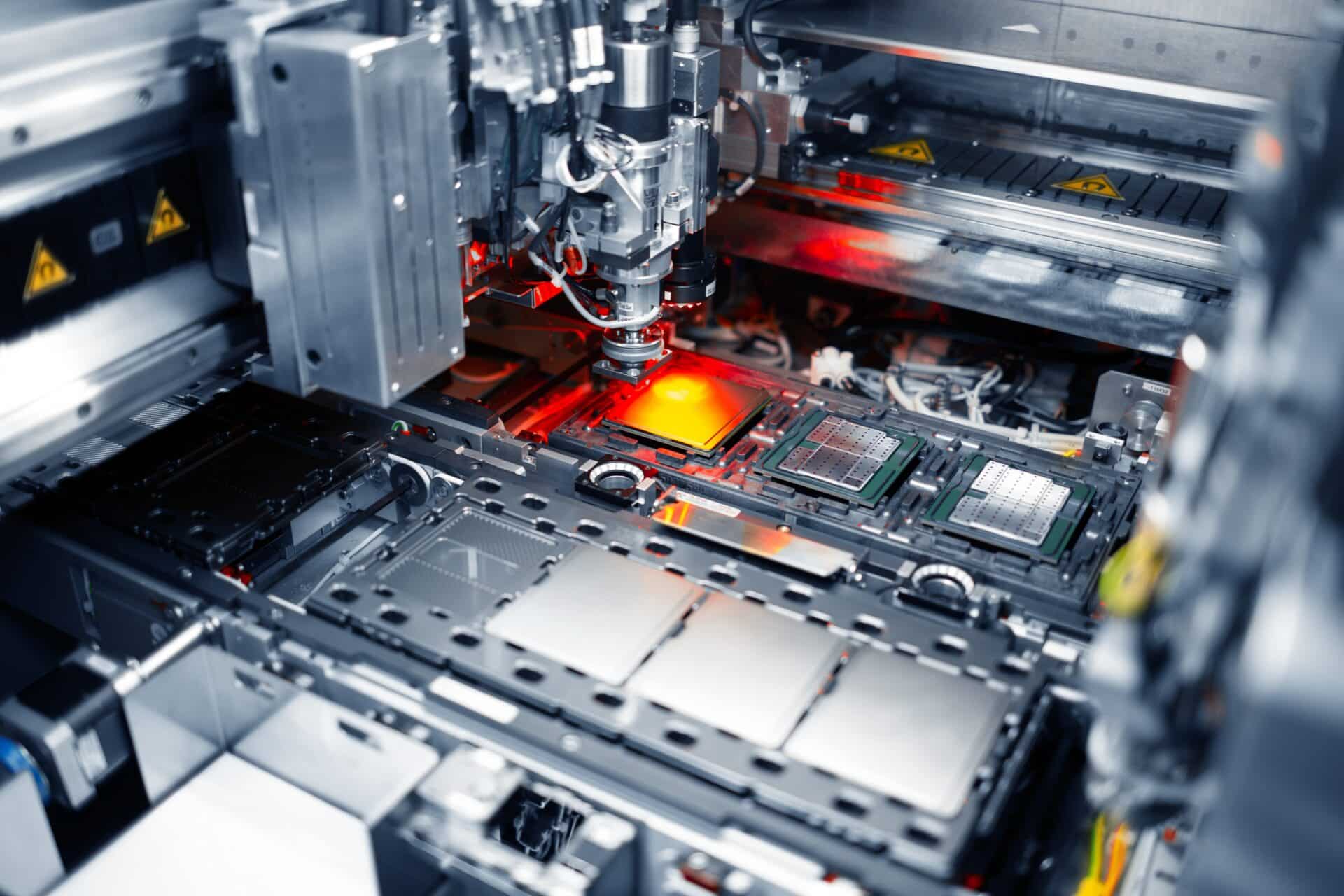Semiconductors are the building blocks of all electronic products and an essential element of digital transformation. Currently, Asian countries account for nearly 80% of their production. The pandemic has shown that when the supply chain is disrupted, Europe virtually loses the ability to produce new devices. Therefore, the EU is strengthening its semiconductor ecosystem and aims to bring some of the production back to its territory. Intel’s investment in a semiconductor factory near Wrocław, along with facilities in Ireland and Germany, is set to create the most advanced semiconductor production chain in Europe.
Semiconductors, also known as chips, are crucial to modern economies and our daily lives. A single semiconductor chip contains as many transistors as the Great Pyramid of Giza has stones. Currently, there are over 100 billion integrated circuits in use worldwide.
“Semiconductors are needed in almost every device we use daily. It is estimated that we spend about 12 hours a day in contact with semiconductors in some form, making them critical,” says Max Mieszko Dropiński, an Intel representative, in an interview with Newseria Business.
Semiconductors are the foundation of digital transformation, without which the automotive industry, communication, data processing, space exploration, defense, and smart devices could not function.
“Semiconductors are the computing machines, the brains of the devices we use every day, such as computers and mobile phones. A typical car has over 2,000 semiconductors, as does life-saving equipment in hospitals, in education and science, and in everyday appliances like home and audiovisual devices,” lists the Intel expert.
Currently, Taiwan, South Korea, China, and Japan produce the most semiconductors, accounting for nearly 80% of global production, with Taiwanese semiconductor companies alone holding over 22% of the global market share for high-end microchips.
During the pandemic, global chip shortages disrupted supply chains, caused production delays, product shortages, and in some cases even forced factories to close. Therefore, experts emphasize the necessity of reducing dependence on Asian suppliers.
“Given that most semiconductor production takes place in Asia, in case of supply chain disruption, which we have seen during the pandemic or in the event of geopolitical tensions, which are not so unlikely, we could lose access to new semiconductors overnight. Therefore, it is critically important for the security of our region that we have the capabilities to produce advanced semiconductors in Europe,” argues Max Mieszko Dropiński.
At the beginning of the century, the European Union accounted for about one-fourth of the world’s semiconductor production, but today it is less than 10%. That’s why last year the European Commission adopted a regulation concerning the European Chips Act as part of a broader package of measures aimed at strengthening the EU’s semiconductor ecosystem.
“If we lose access to production, which currently takes place 80% in Asia, we lose the ability to produce new devices, cars, mobile phones, computers, or even life-saving medical equipment. Hence the critically important role of semiconductors and their production in the region of Europe, not only at individual stages of the production process but throughout the entire semiconductor manufacturing chain,” stresses the Intel representative.
The EU plans to allocate 43 billion euros to increase the number of factories and the scale of semiconductor production in Europe. The plan aims to increase the supply of semiconductor devices in the EU and reduce its dependency on Asian suppliers, as well as boost investment in semiconductor research in Europe. According to estimates, this will increase the EU’s share in the global market from 10% to about 20% by 2030. One of the moves that will enable this is the opening of a large semiconductor factory near Wrocław by Intel.
“Poland has a very good talent base, very good technical universities. Therefore, it is an ideal place to locate investments, especially in the field of engineering, as evidenced by many examples, including Intel’s investments. Currently, in Gdańsk, we have Intel’s largest research and development center in Europe. Now, in the third phase of our development in Poland, we plan to invest in a semiconductor integration and testing plant near Wrocław,” says Max Mieszko Dropiński.
The investment in Miękina near Wrocław, combined with the existing facilities in Ireland and the planned factory in Germany, is expected to create the most modern semiconductor production chain in Europe. The facilities in Ireland and Germany will handle the first stage, the so-called front-end – the production of semi-products in the form of silicon wafers.
“To have a ready microprocessor, a ready chip, or semiconductor, a second stage, the so-called back-end, is also needed, and that is what the planned investment near Wrocław will focus on, we call it the Semiconductor Integration and Testing Plant. Thus, the final product will come from this last stage, from near Wrocław,” emphasizes the Intel representative.
The construction of the plant in Poland is estimated to cost a total of about 20 billion PLN. Public aid is expected to amount to about 6 billion PLN.
“We are in the process of negotiating with the European Commission our application for public assistance under the EU Chips Act, which is dedicated to this type of investment. Once the Commission positively considers our request, we will need three to four years to complete the first stage of the investment,” indicates Max Mieszko Dropiński.
